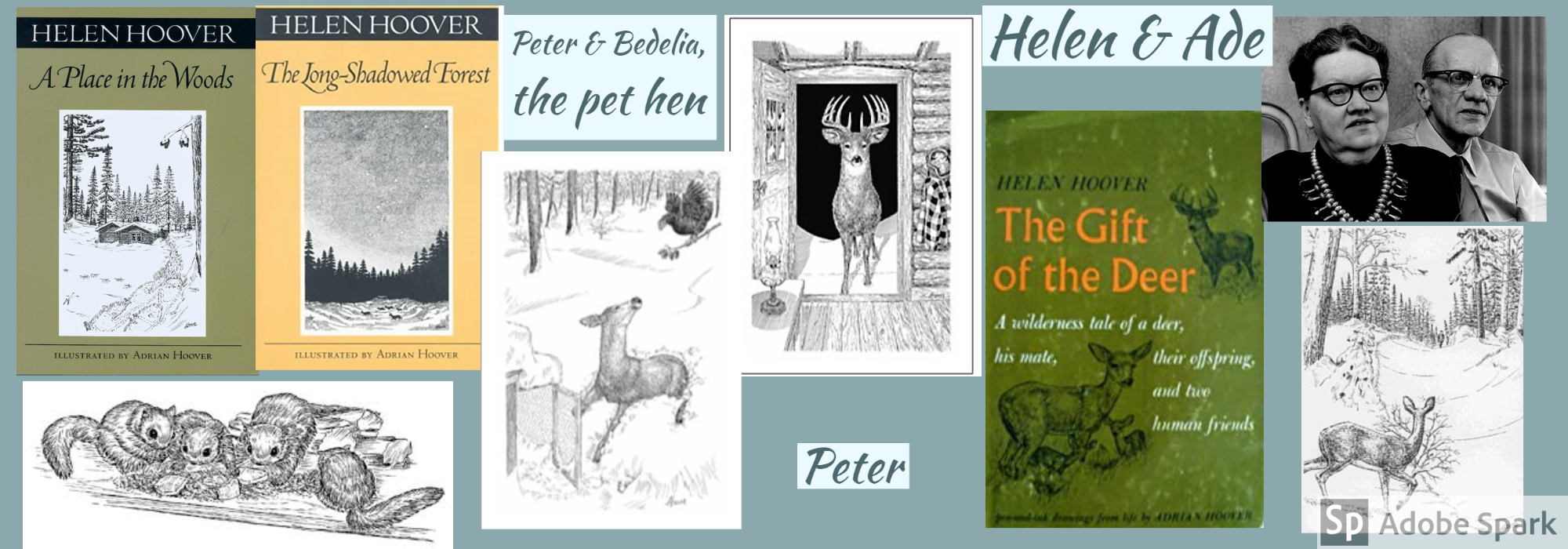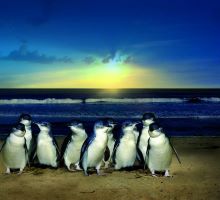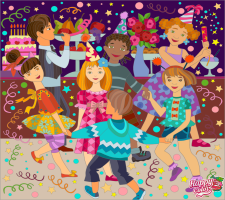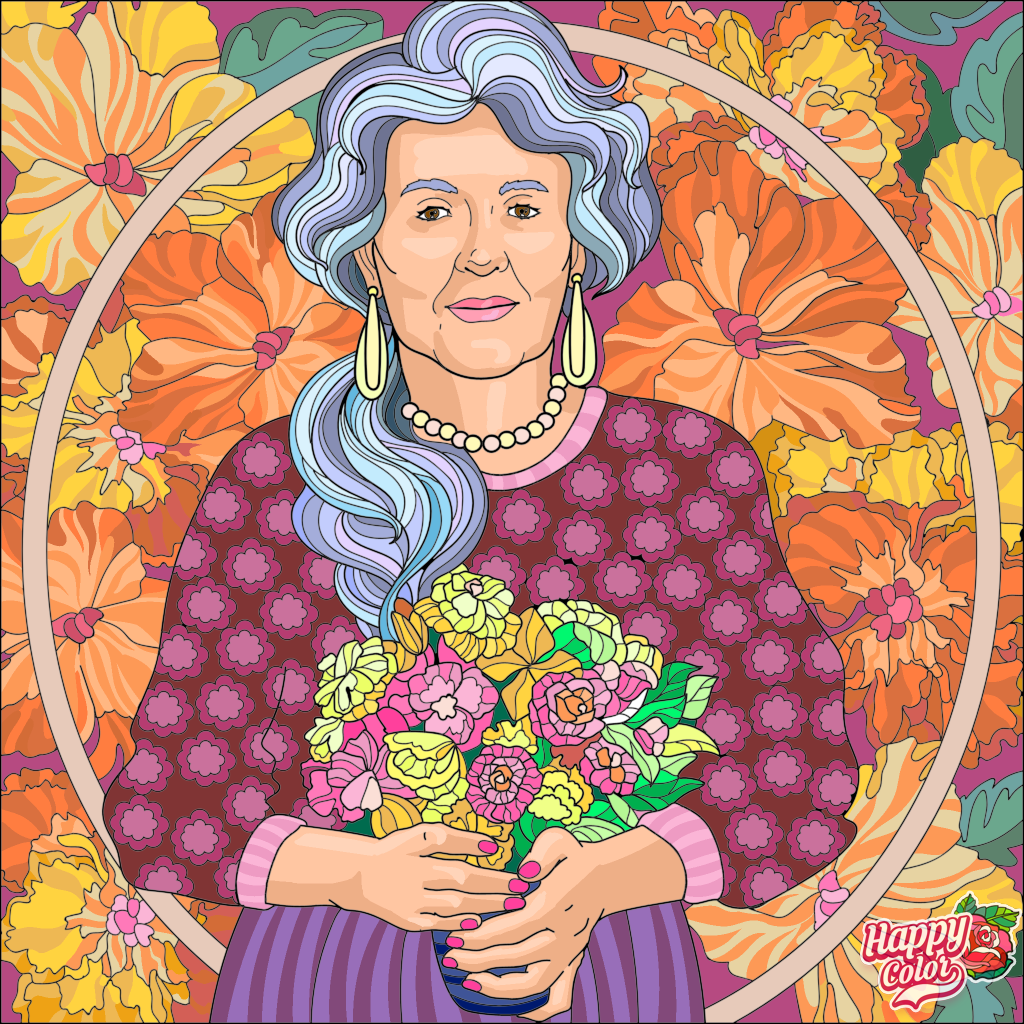The Gift from Helen and Adrian Hoover
#



Helen and Adrian Hoover were well settled in Chicago — she in her metallurgical laboratory, he in his advertising agency. When they were in their mid-forties, after more than a decade of fruitless search, they finally bought a dilapidated log-cabin by the side of Lake Superior on America’s North Shore amidst a virgin forest, where none of the green-furred shelf-branched white pines, pointed-topped balsams, thickly needled white spruces and the white cedars were less than two centuries old. It was supposed to be their vacation home to enjoy some privacy, far from the madding city. This was in April 1954.
The forest soothed them. The forest showed them its fury. The Cabin almost collapsed in a rainstorm. A stream flowed through their basement, which washed the foundation away. Helen was by herself that day, Ade having gone to the nearby town to get mail and provisions. A black bear, utterly terrified, tried to share the dry cabin’s comfort with Helen when he tried to come from the basement ripping the floor boards. His endeavor was thwarted by a 60-foot pine crashing on the cabin roof struck by a lightning bolt.
Ade fell ill the next year and lost his job. His recuperation was slow. The cabin was beaconing them and they moved there for at least two months. During this period, they realized that the log cabin would take years to become habitable. They bought another better house nearby. After their vacation was over, when they were returning to Chicago to resume their familiar life, on an impulse, Helen called her office from the old-fashioned Bell Telephone from the local town and bade them Good-Bye! They took a U-turn and went back to their Place in The Woods, where they spent the next thirteen years of their life.
Helen was a keen observer. And she always wanted to write. In her seventh grade, she was found reading a detective storybook in class and, as a punishment, was given a task of writing an essay on the National Parks. She ended her masterpiece with, “Someday I intend to live in one of the parks where there will be no one to bother me while I read, and write about what I see”. That is exactly what she did. And did extreme well, so that from a status of being completely broke, they became quite well-off to spend their old age in New Mexico in relative comfort. Ade was the artist, whose pen and ink sketches of the animals and nature accompanied Helen’s books.
Helen and Ade’s life was not easy. They had to do everything by themselves — fixing the roof if it leaked, cutting logs for fire, hauling oil and kerosene up and down the embankments for the lamps, cooking, washing, cleaning, stocking up for winter … literally everything! All these were accomplished under the watchful eyes of the creatures around them. When they moved to the primordial forest, they did not want to impose themselves on nature, but wanted to become part of the surroundings. One of the first adjustments that has to be made was to utilize the daylight to the utmost and to take advantage of the good-weather days. Hauling water from the lake was a chore. Helen decided to wash her curtains in the lake. A vacationing couple came by in a boat. They stared at her and asked,
“What are you doing?”
“Washing curtains.”
“But why here?” the woman persisted.
“My goodness! Why on earth should I do it anywhere else when all the water’s down here?”
Helen wrote several books on their experience by the side of Lake Superior. The first one I read was a Readers’ Digest condensed form of The Gift of The Deer, probably when I was in college. The book kept haunting me. Then came a feature in National Geographic on the drive on the America’s North Shore, from Duluth in Minnesota to Thunder Bay in Canada. I made up my mind that before leaving U.S.A., I have to touch this path, I have to visit Lake Superior. Probably some other time I will talk about that drive and the excellent blueberry pie I had in a family coffee shop, sitting at a small square wooden table covered by a red-and-white-checkered table cloth.
When they moved in among the woodsmen community, people around betted on the Hoovers’ survival! After four years of hardship, when Helen and Ade had more or less settled in their way of life in Minnesota, on a bitter Christmas night Peter came to them. Peter was a buck, of the whitetail variety, emaciated as he had been shot and lost one eye, trembling, on the verge of death by starvation. Ade cut some cedar for him. The last Helen saw him at midnight when the temperature outside was an ominous thirty-seven below zero in Fahrenheit scale, he had curled up in the snow to sleep as comfortably as possible on the edge of the open space, accompanied by a snowshoe hare and a little saw-whet owl. Helen was reminded of an old Nordic legend that all lost animals come home at Christmas time.
Thus began a strange tale of trust between two humans and the deer. Hoovers did not tame Peter, neither they wanted to know about Peter’s movements during summer. Rather they let Peter to teach them how can they be of any help. During winter time, when the ground was hidden under several feet of snow, the lake became a solid sheet of ice and the only colour visible was pristine white, Peter again came to the Hoovers for food. This time he brought with him his consort, Mama. Peter and Mama’s family continued to visit that place every year. First came Snowboots, then Brother and Pig, Pretty and Fuzzy, Little Buck and finally Starface. Each of them had different personality, different behavior among themselves and different levels of trust for the humans. Fuzzy and Little Buck paid the price of trust with their lives, when hunters heard that deer are always seen in Hoovers’ backyard.
Weasels, squirrels and birds of all types were plentiful all over in the forest, even an occasional lynx was seen travelling with a bobcat. It was not an idyllic world, but a nature at the raw. Some nights were magical, some eerie. Wolves were around, hunting the yearlings, because they were the most vulnerable. It was savage, ruthless and violent — but that is how nature is. Sometimes nature transcends beyond ethereal. One particular night the sky was so screened with swirling frost that the light of the moon was wholly and perfectly diffused. On everything in the forest, the trees, deer, wolves and humans, there was a smooth, silvery, even glow. Under the trees, instead of deep darkness, there was no shadow anywhere.
Peter stayed with the Hoovers for four years. Then he took the long road beyond. When Starface was pursued by a gang of wolves, Peter was downwind, galloped towards them and that was for ever. Helen and Ade read the story in their hoof tracks in the snow. Peter was gone but Mama and their children and their children’s children kept returning to the Hoovers for a very long time.
Helen Hoover’s books are not easily available in India. The hardcover books may cost anything between Rs. 9000 and Rs 25,000! So I had to depend on my friends in the U.S.A.to bring them to me. I got hold of the old and used books through Amazon and sent them to my friends’ addresses. When they visited home, my prized possessions reached me.
Comments
The Pristine Nature
Wonderful picturesque description of the nature. I like to visit that place. I will look for Helen Hoover’s books as well. Enjoyed the writing.
Arunima Bhattacharyya
29-07-2020 22:06:40
Hoovers
Enjoyed reading it. A lifetime of adventure, hardship, and courage lived on their own terms.
Joydeep Ghosh
02-08-2020 08:41:35
Reply here




The Pristine Nature
I want to read this book. Not an old or used one, a new one. So vivid description, how I wished to live Helen's life.
Soma Gupta
28-07-2020 19:54:31